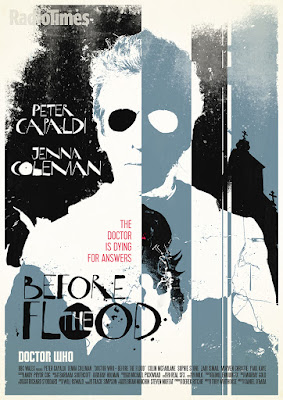“The Girl Who Died” was possibly the most anticipated episode of season nine, not as much for the material, but rather for a crucial piece of casting: Maisie Williams of
Game of Thrones fame. (Typed as though you didn’t know who she was, right?) We’ve had a number of casting crossovers between the two shows already, and yet this is surely the most exciting one yet, because, well, who doesn’t love Maisie Williams? Even when the now multiple-Emmy-winning series occasionally becomes too much for some viewers, Maisie’s Arya Stark remains one of its few go-to comfort characters. So, yeah, let’s put her on
Doctor Who and see what happens. Turns out quite a bit, and more, I imagine, than anyone ever expected or saw coming.
Yet for the hardcore fan who pays attention to credits, it wasn’t just Maisie that had us excited. “The Girl Who Died” is written by Jamie Mathieson, who last year gave us the brilliant one-two punch of “
Mummy on the Orient Express” and “
Flatline,” arguably the highlights of season eight. And from a freshman
Who writer, no less. (Also, he’s a hell of a nice guy, as anyone who chatted with him at
Gallifrey One earlier this year will attest.) As if those weren’t enough reasons to be stoked about this episode, it is helmed by first time
Who director Ed Bazalgette, which may mean nothing to you, but to me that’s huge. Back in the early '80s, Bazalgette played lead guitar in the Brit new wave band
The Vapors, best known for their hit “Turning Japanese,” though every single song in their whopping two album catalog is a gem. Yes, I’m a bit of a Vapors freak, and delighted that two of my treasured pop cults have merged.




